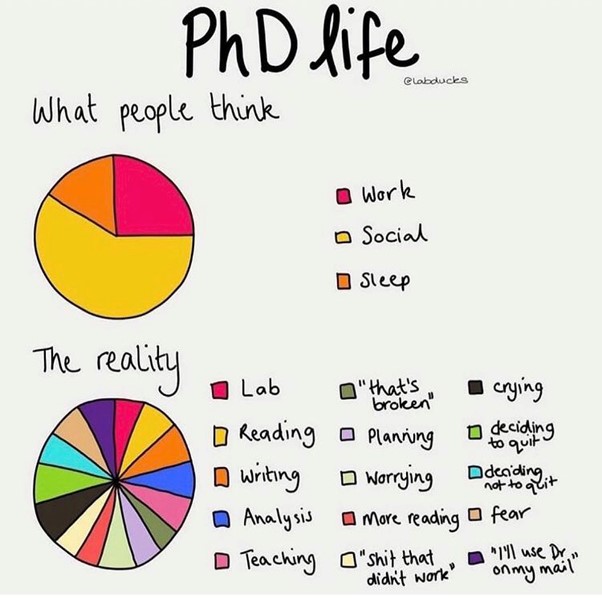10 things I wish I had known before I applied for my PhD
3 June 2024
Embarking on a PhD journey is both exciting and daunting. I’m currently doing my PhD at the School of Biosciences, reflecting on my own experience, there are several insights I wish I had known before I began. Whether you’re considering a PhD or have already applied, these reflections might help you navigate the path more smoothly.
- The Importance of Supervisor Fit
When I applied for my PhD, I focused heavily on the institution’s reputation and the program’s prestige. However, I soon realized that the relationship with your supervisor is crucial. A supportive and compatible supervisor can make a significant difference in your research experience. Take the time to research potential supervisors, their work, and their mentorship style. Arrange meetings to discuss your interests and see if there’s a good fit. So I finally chose Cardiff University from 3 PhD offers, and I’m so thankful for how my supervisors supported and guided me.
- Research Topic Flexibility
I was fixated on two to three specific research topics when I applied. What I didn’t anticipate was how much my interests and the research landscape could change. It’s beneficial to remain flexible and open to refining your topic as you delve deeper into your field. This flexibility can lead to more innovative and impactful research.
- Funding Realities
Securing funding can be a complex process. I wish I had known more about the various funding options available, such as scholarships, grants, and assistantships. It’s crucial to understand the financial aspects, including living expenses, research costs, and potential funding gaps. Seek advice from current students and the university’s financial aid office to create a realistic budget. You can also find PhD projects and funding information via this link: https://www.cardiff.ac.uk/study/postgraduate/funding/phd-studentships-and-projects
- Work-Life Balance Challenges
Pursuing a PhD is demanding, and it can be challenging to maintain a healthy work-life balance. I underestimated the intensity of the workload and the mental strain. Establishing boundaries, practicing good time management, and prioritizing self-care are essential. From my own experience, taking breaks and having hobbies can enhance our productivity and well-being.

- The Importance of a Support Network
I didn’t fully appreciate the value of a strong support network until I was deep into my PhD. Building relationships with fellow students, joining academic and social groups, and staying connected with family and friends provide emotional and practical support. Sharing experiences with peers can be incredibly reassuring.
- Academic and Professional Development
A PhD is not just about producing a thesis. It’s also a time for personal and professional growth. Engage in workshops, conferences, and networking events. Develop skills such as teaching, public speaking, and project management. These experiences are invaluable for our academic and career trajectory. Our university has Doctoral Academy (DA) which helped me a lot about software using, skills development, etc, please get more information from DA website via this link: https://www.cardiff.ac.uk/study/postgraduate/research/doctoral-academy
- Publication and Dissemination
Publishing research is a vital part of academia. I wish I had understood the publication process better before starting my PhD. Familiarize yourself with the expectations in your field, the types of journals and conferences relevant to your work, and the peer-review process. Start thinking about potential publications early on.
- Mental Health Awareness
The journey can be emotionally taxing, and maintaining mental health is crucial. I wish I had been more aware of the potential for stress, anxiety, and imposter syndrome. Don’t forget to utilize university counselling services, peer support groups, and mindfulness practices when you need. Seeking help is a sign of strength, not weakness.
- Realistic Career Expectations
I entered my PhD with specific career goals in mind, assuming a clear path post-graduation. The reality is that the job market, especially in academia, can be unpredictable. Explore various career options, including industry roles, consulting, and non-academic positions. Keep an open mind about where your PhD might take you.
- The Value of Patience and Persistence
Lastly, I wish I had known just how much patience and persistence are required. Progress can be slow, setbacks are common, and the journey can be longer than anticipated. Celebrate small victories and keep your long-term goals in sight. Persistence and resilience are key to overcoming challenges. A PhD is a big test for our characters.
Embarking on a PhD is a significant commitment, filled with highs and lows. By being aware of these insights, I hope you can better prepare for the journey ahead and make the most of your doctoral experience. Remember, you’re not alone—many have walked this path before you and have thrived. Best of luck on your academic adventure!